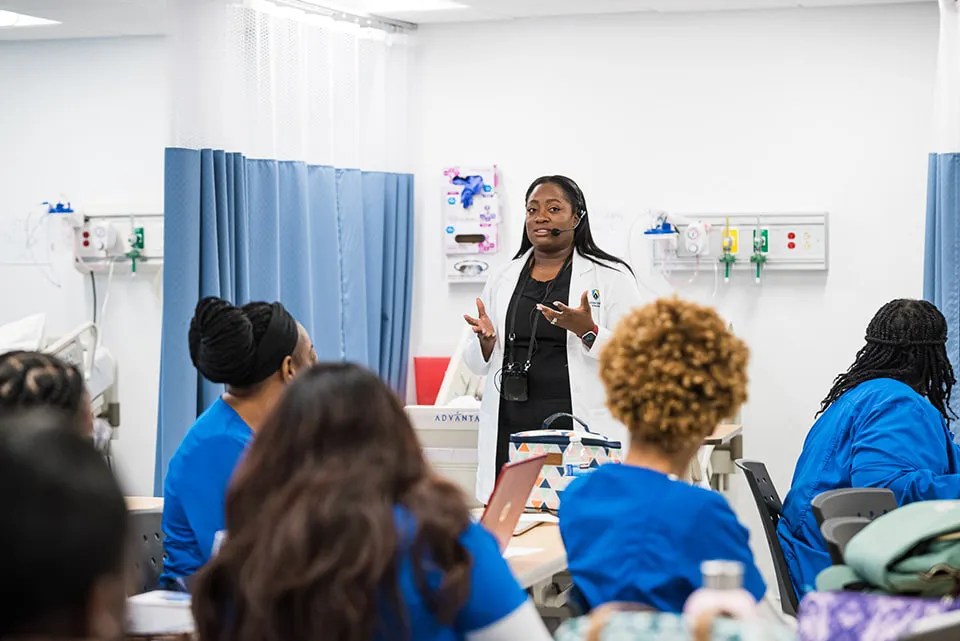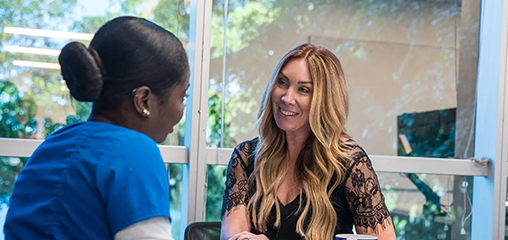
Dallas Examiner, Published June 15, 2024
By Curtis Anderson, Arizona College of Nursing faculty member.
While each of us is guilty at one point or another of ignoring our health, statistics show that men are far more likely to be guilty of this infraction. Men are nearly 50% less likely to go to the doctor than women, including age-appropriate screening procedures.
Some have referred to this as “misguided masculinity.” While there is nothing inherently wrong with a resilient demeanor, taken to extremes, this demeanor can harm or kill. Not going to the doctor with a symptom because of “toughness” or “rub-a-little-dirt-in-it” may lead to the symptom going away on its own. However, this attitude may also lead to the fallacy that it will always go away. Especially as men age, that is simply not true.
Delaying care can have detrimental effects on all facets of health, whether physical or mental. Recent research finds that the gender gap for lifespan is widening, with women outliving men by 5.8 years. The importance of seeking medical attention when something is wrong can’t be overstated. But men also need to be vigilant about preventive care. As men go through different periods of their lives, they have different risk factors. Let’s discuss four areas men need to focus on as they age and throughout their lifetime.
1. Practice Safety Measures
Men between the ages of 16 and 35 are at the highest risk for accident-related injuries, including spinal cord injuries, traumatic brain injuries and thoracic trauma. Young men are far more likely to participate in activities with accident risk and are more likely to do so without taking proper safety measures. Brain and spinal injuries can lead to losing the ability to walk and breathe independently, permanent incontinence, permanent erectile dysfunction and death.
The best thing you can do to prevent them is to keep yourself safe. Here are three specific tips to practice every day: Wear a seatbelt, drive the speed limit, and do not drink and drive. Doing these three things alone reduces the risk of accident-related injuries and death. If you find yourself doing something, especially driving, and you are not doing everything you can to keep yourself safe, STOP and make yourself safe.
2. Prioritize Mental Health
As boys grow into men, the challenges of puberty and adolescence can be overwhelming. It may be said that as we grow, both our joys and our sorrows intensify. For some boys growing into men, this is overwhelming. Overwhelming feelings can lead to despair, and despair leads many young men to suicidal ideation. Suicide is the second leading cause of death for people ages 10-14 and 20-34.
If you find yourself with violent thoughts towards yourself, thinking of a plan to kill yourself, or thinking that it would be better if you were dead, reach out for help. You can go to your local emergency room, or call the suicide hotline, 988. If you do not remember either of those two options, call 911.
While suicidal ideation may lessen as we age, the importance of maintaining good mental health does not. As our responsibilities and stressors increase, so does sadness, depression, and anxiety. Mental health and physical health inform each other. Men, especially, may have a tough time admitting they are experiencing mental health concerns and seeking help. But what is the point of being strong physically if you feel lousy emotionally? Mental health is a big part of overall health throughout our lives. Please don’t ignore it!
3. Schedule Preventive Screenings
Middle age (35-55) is a pivotal time for men’s health. Suicide and accident risk drop significantly after men leave their twenties. Most of the time, if you make it to 30, you will also make it to 50. Many feel they are immune to disease at this stage of life. “I’m not old enough to have…” may be commonly uttered. While this is true most of the time, diagnosis of “old” diseases sometimes happens at a young age. As such, preventative screening is crucial. Screening involves diagnostic tests done with or without symptoms to see if you have labs or symptoms indicating a specific disease.
While most major organ diseases, such as heart, liver and kidney failure occur after the age of 55, they may happen sooner, with or without risk factors. Regular screenings occur by regularly visiting your primary care physician. A yearly physical is an essential tool to maintain health. Doctors can look at your demographics, risk factors and prescribe appropriate testing. Routine blood work includes screens for kidney, liver and heart diseases as well as diabetes.
Doctors may remind men in this age range to routinely check the shape of their testicles, as testicular cancer risk is at its highest in this age range. If you are a man over 45, you will likely also be recommended for a colonoscopy, a screening that can significantly reduce your risk of developing colon cancer. For many serious diseases, early detection is the best chance of survival.
4. Don’t Ignore Symptoms
Beyond the age of 55, men are generally at the most risk for adverse health events. While some diseases are completely out of personal control, others may be influenced by decisions made in youth. In this age demographic, heart disease is more likely to develop. Those symptoms include fatigue (significantly worse than baseline), difficulty breathing, feeling your heartbeat in your chest (palpations), feeling colder, seeing fluid accumulation in your legs or abdomen and chest pain. Any of these symptoms warrant a visit to the doctor. In the case of chest pain, emergency room visits are most appropriate. If you have these symptoms, or even think you might have these, visit a doctor. Early catching of cardiovascular diseases leads to better outcomes and longer life.
Cancer symptoms can also be non-descript. Depending on the type of cancer, unique symptoms can include night sweats, swollen lymph nodes, cold symptoms, fatigue, pain, numbness and tingling, bleeding, and bruising, fluid accumulation, difficulty breathing and many more.
If you are experiencing something outside your norm, you should make an appointment with your doctor. That tingling in your toe, the strange bump on your skin, or a persistent cough, may be nothing. However, it could also be something entirely manageable with early detection yet serious if ignored. Listen to your body and see a doctor if you are experiencing something abnormal.
In conclusion
Taking care of yourself and prioritizing health is hard. And for some men it can be even harder to seek help and focus on mental and physical well-being. It is a battle that must be fought through every stage of life. Take safety precautions, schedule regular check-ups and be honest about your physical and emotional symptoms. Please let others make it easier for you. Trust those around you if they say you are acting differently or if they think a symptom warrants a doctor’s visit. Trust yourself to differentiate between normal and abnormal. No matter your age, take control of your health.
 Curtis Anderson is a full-time faculty member at Arizona College of Nursing. He started his nursing career as a bedside nurse, primarily working with cardiac patients. He is a passionate educator who believes training future nurses is changing the world, one student and one person at a time.
Curtis Anderson is a full-time faculty member at Arizona College of Nursing. He started his nursing career as a bedside nurse, primarily working with cardiac patients. He is a passionate educator who believes training future nurses is changing the world, one student and one person at a time.
Start Your Future in Nursing Today

If you’re considering a career as a registered nurse (RN), Arizona College of Nursing is here to help you pursue your dream. Our BSN program enables you to earn a Bachelor of Science in Nursing in just 3 years or less with qualifying transfer credits. We’ve helped hundreds of students to earn a BSN degree and enter the nursing profession – and we’re ready to support you on your path to becoming an RN.
Why Choose Arizona College of Nursing?
- Earn a BSN degree in 3 years or less with eligible transfer credits
- Campus locations throughout the US
- Night classes for general education courses
- Hybrid Online/In-Person format for general education classes
- Nursing education is all we do
- CCNE-Accredited Program*
- NCLEX-RN success coaches and exam preparation class
- Financial aid available to those who qualify
Discover Your Path to a Career in Nursing
Information in this post is accurate as of June 24, 2024.
*The Bachelor of Science in Nursing (BSN) degree program at Arizona College of Nursing is accredited by the Commission on Collegiate Nursing Education (https://www.aacnnursing.org/). All Arizona College of Nursing and Arizona College campuses are institutionally accredited by the Accrediting Bureau of Health Education Schools (https://www.abhes.org/), a U.S. Department of Education-recognized accrediting agency.








